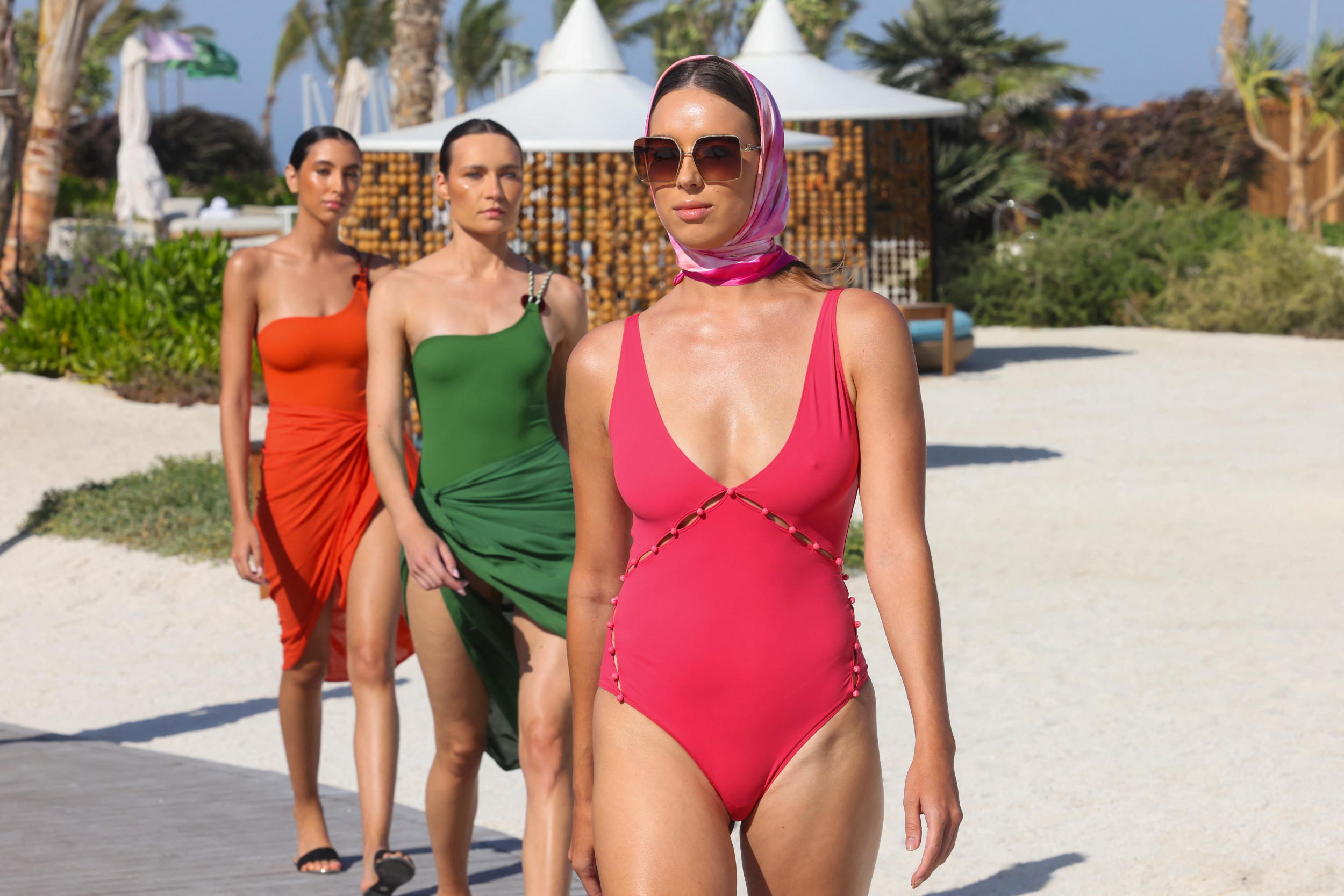Uncommon Knowledge
Newsweek is committed to challenging conventional wisdom and finding connections in the search for common ground.

Saudi Arabia hosted its first swimsuit fashion show on Friday, marking a notable cultural shift in a country where women were required to wear body-covering abaya robes just a few years ago.
Most models showed off swimsuits that exposed their shoulders, some had partially exposed midriffs, and others featured plunging necklines with body-hugging silhouettes — styles that would be unthinkable to show off in public a few years ago.
The poolside event took place on the second day of the inaugural Red Sea Fashion Week at the St. Regis Red Sea Resort.
The show’s main showcase was Moroccan designer Yasmina Qanzal’s collection, featuring simple swimwear that ranged from one-pieces with deep V-cuts and off-shoulder motifs to bandeau tops and various sarongs.

“It’s true that this country is very conservative but we tried to show elegant swimsuits which represent the Arab world,” Qanzal told the AFP news agency. “When we came here, we understood that a swimsuit fashion show in Saudi Arabia is a historic moment, as it’s the first time such an event is being held.”

The fashion week is part of Red Sea Global, one of the mega-projects central to Saudi Arabia’s Vision 2030 social and economic reform program, overseen by Crown Prince Mohammed bin Salman.

The fashion industry in Saudi Arabia has been growing rapidly. In 2022, the industry contributed $12.5 billion, or 1.4% of the national GDP, and employed 230,000 people, according to a recent report by the Saudi Fashion Commission. That growth aligns with the broader goals of Vision 2030, aiming to establish Saudi Arabia as a global hub for fashion and culture.

Since being named crown prince in 2017, bin Salman has spearheaded several initiatives to modernize Saudi society, including the sidelining of the country’s religious police, reintroducing movie theaters and organizing mixed-gender music festivals.

All of these reforms, taken together, are part of bin Salman’s long-term project of reducing the kingdom’s dependence on oil by diversifying its economy and promoting sectors from tech to tourism, sports, entertainment and fashion.
The plan includes numerous social reforms designed to liberalize some of the kingdom’s stringent cultural norms, as well as several massive infrastructure projects currently in development that, if completed, would turn Saudi Arabia into a major destination for foreign capital.
While bin Salman is leaning into his reputation as a reformer, he remains an autocratic leader. U.S. intelligence agencies believe he personally gave the order to kill American journalist Jamal Khashoggi at the Saudi Consulate in Istanbul in 2018, a horrific incident that put renewed strain on the U.S.-Riyadh relationship.
Newsweek is committed to challenging conventional wisdom and finding connections in the search for common ground.
Newsweek is committed to challenging conventional wisdom and finding connections in the search for common ground.